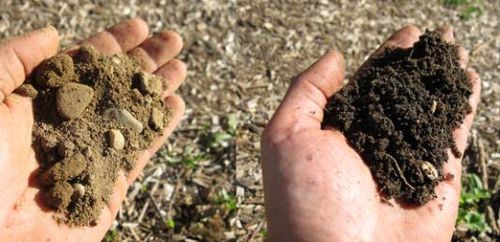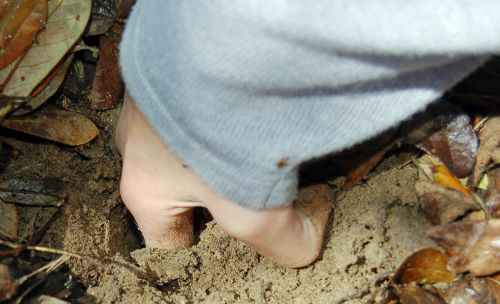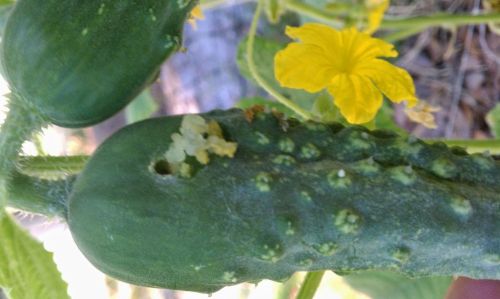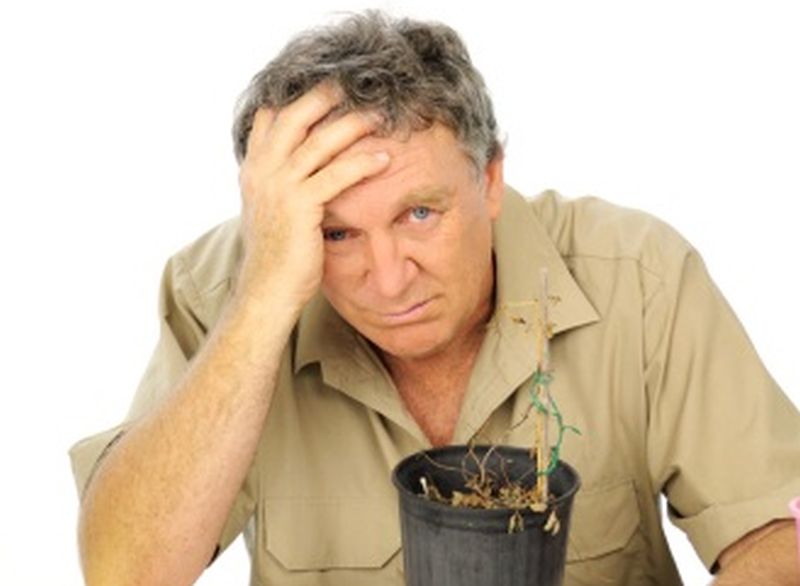Sometimes all it takes is a little basic planning to avoid the most common mistakes made by first time gardeners.
Start First With The Basics, It’s Important To Get That Right
Plants require sufficient food, water and sun to thrive. If you can get these at least partially right you should see enough success to make gardening a regular practice.
You should know something about the plants you plan to grow. Most gardeners will want some crops that produce fruiting vegetables such as tomatoes and peppers. Crops like these prefer as much sun as possible whereas greens like lettuce and spinach are happier in partial sun and shade.
Whether you buy plants or start with seeds, somewhere on the package or container it will tell you what the recommended amount of sun the plant prefers. Use that as a guide to locate a good spot to plant it.
 The type of soil you provide for your plants give them the nutrients they need to grow healthy and reach their potential. There’s a direct relationship between the quality of your soil and the production of the plants in your garden. Personally I prefer raised beds over traditional direct in the ground planting.
The type of soil you provide for your plants give them the nutrients they need to grow healthy and reach their potential. There’s a direct relationship between the quality of your soil and the production of the plants in your garden. Personally I prefer raised beds over traditional direct in the ground planting.
Raised beds provide an opportunity to supply a higher quality, nutrient rich soil mixture so your crops can get the most benefit. By supplying a known soil mixture you eliminate one of the three critical variables your garden needs for success.
The third important variable needed for success is of course water. How much water is a common question newbies often ask. This is another area where a raised bed has an advantage.
With a raised bed you can provide a soil mixture that retains needed moisture plus it’s unlikely that you will over water a raised bed because the excess water just runs out the bottom of the bed. In other words a raised bed is more forgiving if you tend to over water. Use your finger to check for sufficient moisture. Stick your finger in a few inches. If it feels moist you probably have sufficient water.
 As long as were talking about water now is a good time to suggest some type of automated watering system. It doesn’t have to be complicated and it eliminates a never ending chore. Trust me on this one by the end of the growing season you’ll really appreciate not having to think about watering.
As long as were talking about water now is a good time to suggest some type of automated watering system. It doesn’t have to be complicated and it eliminates a never ending chore. Trust me on this one by the end of the growing season you’ll really appreciate not having to think about watering.
Other than the basics, probably the biggest mistake a beginning gardener would make is starting too big. They do not realize how much work it takes to nurture and maintain a large garden over the next 90 to 120 days.
It’s easy for a newbie to under estimating the amount of work required to control weeds and pests. It isn’t something you can do once a week. In a weeks time, pests can completely overtake and destroy your hard work, not to mention your investment.
I often wondered what the bugs were feeding on before I started my garden and where did they all come from. It’s such a constant battle to keep them under control especially if you want to avoid toxic chemicals.
Here in Florida and probably other parts of the US it’s the bugs that come in during the night that are the biggest problem. They must have an extremely high sense of detecting their targets because they don’t seem to have any problem knowing where and when to show up.
They fly in, lay eggs on unsuspecting plants and are gone before the sun comes up. At first you don’t even realize you’ve been hit and there’s a problem brewing. One day everything looks fine and the next day your plants look like swiss cheese.
One of my biggest frustrations has been growing cucumbers. The first year I didn’t have a single problem. The second year I didn’t have a single cucumber. The culprit is a moth that lays eggs on the plant which hatches into a worm that drills into the cucumber just after it starts to form. It’s heart breaking to see your plant growing nicely and finally starting to produce fruit and shortly after that a pest ruins it.
 When you are just starting out it’s especially difficult to identify what pests are causing problems and then what to do about it before it’s too late.
When you are just starting out it’s especially difficult to identify what pests are causing problems and then what to do about it before it’s too late.
If there’s one thing I would recommend for a new gardener it would be to learn what crops are easiest to grow and are less prone to have problems.
In Summary
- Plan the best location for your plants based on the amount of sun the prefer
- The quality of your soil determines the quality of your crops. If you plant in raised beds you have an opportunity to fill it with nutrient rich soil.
- Eliminate the possibility of over watering by taking advantage of raised beds and an automated watering system/
- Start with a garden small enough so you will be able to manage the work involved to take care of it.
- Select plants that are fairly easy to grow and maintain to be successful before tackling more challenging varieties.
